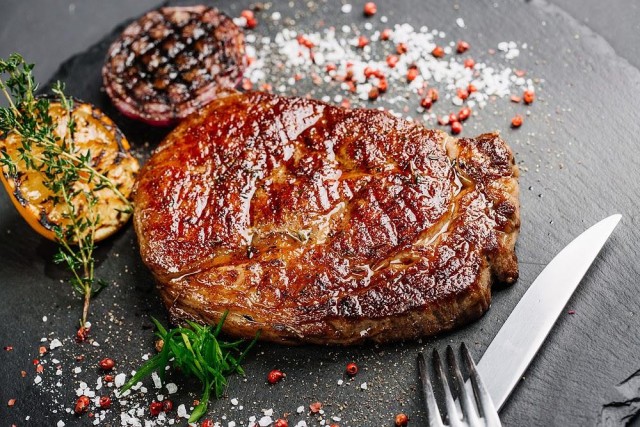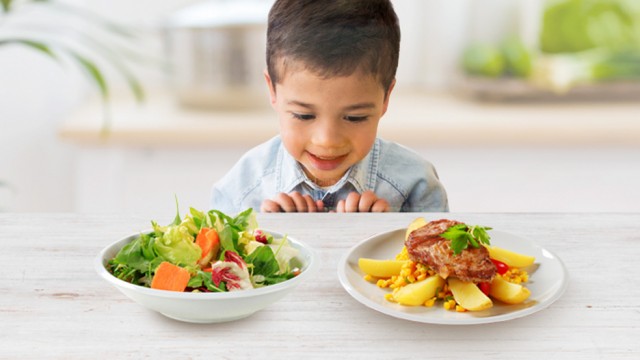Recently, the wave of vegetarianism has flooded into Vietnam, the number of vegetarians has increased so rapidly that according to statistics, up to 55% of people surveyed of various ages are vegetarians. Many people are vegetarian because of religion, some people are vegetarian because they want to protect the environment, protect animals, others want to be good for their health. And the question of which is better to eat vegetarian or to eat meat.
We first find out about what is vegetarian, what is salty, the good and bad sides of each.
1. What is a vegetarian diet?
Vegetarianism is a diet in which people will not be able to use meat, eggs and foods related to animals. Only plant-based foods such as vegetables, nuts, and beans are allowed.
2. What is carnivore diet?
Omnivorous diet is the normal diet of every person, in which, you can eat any foods derived from both animals and plants.
3, Advantage et disadvantages of vegetarian
Advantage:
Plant protein: This type of protein has great effects in limiting kidney stones and osteoporosis. Between vegetarian and salty food, vegetarianism will be very suitable for older people.
Vitamins and anti-aging agents: Plant foods will provide vitamins C, E and antioxidants to help fight diseases and anti-aging effectively. In addition, antioxidants also prevent the growth of cancer cells very well. Therefore, the risk of cancer of salty eaters is twice that of vegetarians.
Fat: by not using meat in the diet, the fat content in vegetarians will be very low, thereby, helping to reduce the risk of heart attack, atherosclerosis, and heart disease.
Disadvantage:
The risk of nutrient deficiencies in vegetarians is often higher. Studies show that vitamins B12, vitamin A, vitamin D, calcium, iron, zinc, DHA are vitamins and minerals that vegetarians are prone to deficiency. In particular, research shows that about 68% of vegetarians are deficient in vitamin B12. This vitamin is involved in the synthesis of red blood cells, the transmission of nerve impulses, the production of nerve myelin sheaths. Vitamin B12 deficiency causes fatigue, anemia, and memory loss.
Vitamin A and vitamin D are almost exclusively found in animal meat. Some plants contain provitamin A but do not meet the body’s needs. Vitamin A deficiency can lead to growth retardation, weak resistance, and decreased vision. Vitamin D deficiency is a cause of rickets and osteoporosis, cardiovascular disease, asthma and cancer.
Studies show that plant-based proteins contain fewer amino acids than animal proteins. Therefore, vegetarians, especially a permanent vegetarian diet, are at risk of protein deficiency. In addition, foods of plant origin also have potential risks of residues of pesticides, preservatives, etc., higher than food from animals.
4, Advantages and disadvantages of carnivore diet
Advantages:
Meat eating will help the body to fully supplement the necessary nutrients for the body, including:
- Protein: in meat, fish, eggs and grains, seeds, beans, fruits will contain a large amount of protein to supplement the body in each meal.
- Vitamin B12: this is a nutrient found in meat, fish, eggs and a small part from cereals and milk. Vitamin B12 has an important role in the formation of red blood cells and nerves, when the body cannot produce enough red blood cells, the body becomes anemic, causing dizziness.
- Omega 3: in fish contains a large amount of omega 3, which plays a role in limiting blood-related diseases such as stroke, blood clots and preventing heart disease.
- Iron: in foods of animal and plant origin, iron is present. However, iron from animal foods is much easier to absorb.
Disadvantage:
Many studies show that people who eat meat often have average blood pressure, higher blood cholesterol levels than vegetarians. Therefore, people who follow a salty diet also have an increased risk of cardiovascular diseases such as blood pressure, atherosclerosis, myocardial infarction … higher.
A high-meat and high-fat diet leads to excess fatty acids and triglycerides – these can inhibit insulin action and increase the risk of type 2 diabetes.
Eating a lot of meat causes the kidneys to work harder to eliminate urea and uric acid. This increases the risk of liver and kidney disease. If uric acid is deposited in the joints, it can cause gout.
In conclusion, do we choose to be vegetarian or to be carnivore?
No one has ever become a Buddha through vegetarianism, no one has ever attained enlightenment, attained Bodhi, enlightened wisdom, and received any great blessings through vegetarianism.
Vegetarianism is a later proponent, not the original, of Buddhism. Theravada Buddhism is not vegetarian, in the past when Buddha and his monks went for alms, but already begging for food, why do they still require it, so the Buddha happily ate all the food offered by sentient beings. Meat but with a heart of compassion, without attachment, without judgment. Whatever you eat, food is just to feed the body, as long as you don’t kill the animal yourself or it’s not because of you that the animal was killed.
However, if you don’t follow a recipe, you can choose foods that you find good for your body and eat in peace and happiness. Eat with gratitude to mother nature for giving you food, eat enough, don’t waste food, that’s already good.
Whatever you eat, it’s your choice. Because eating attitude is important!
Doan Ngoc








